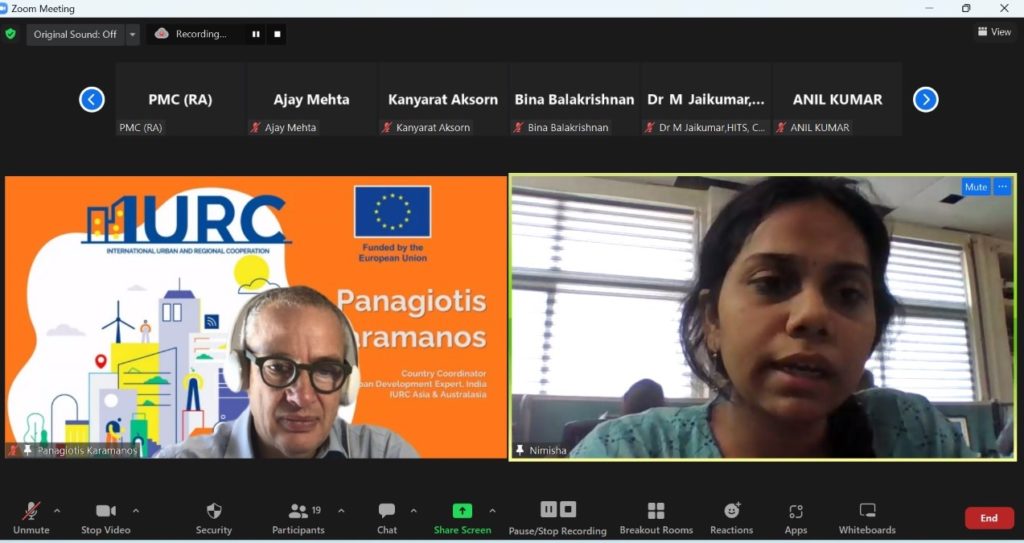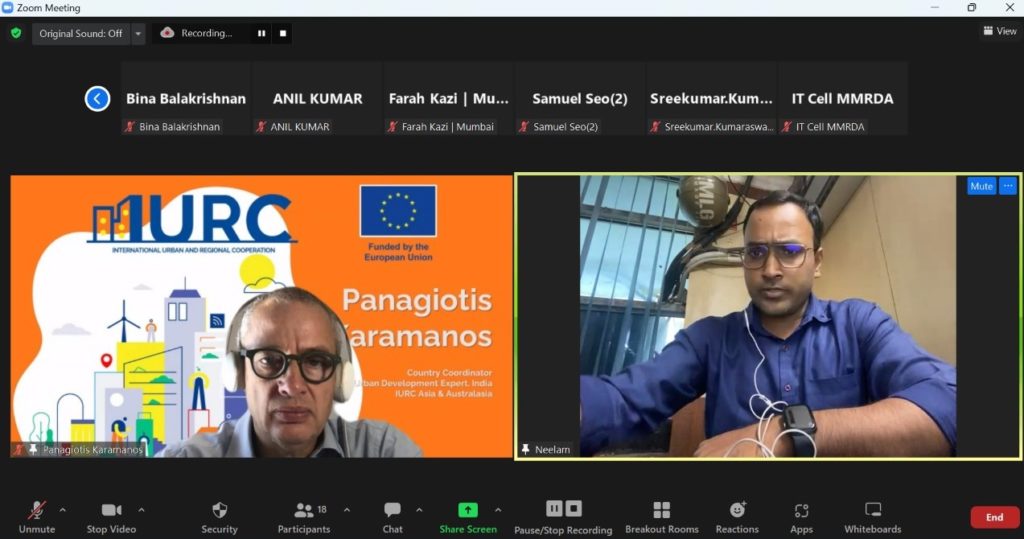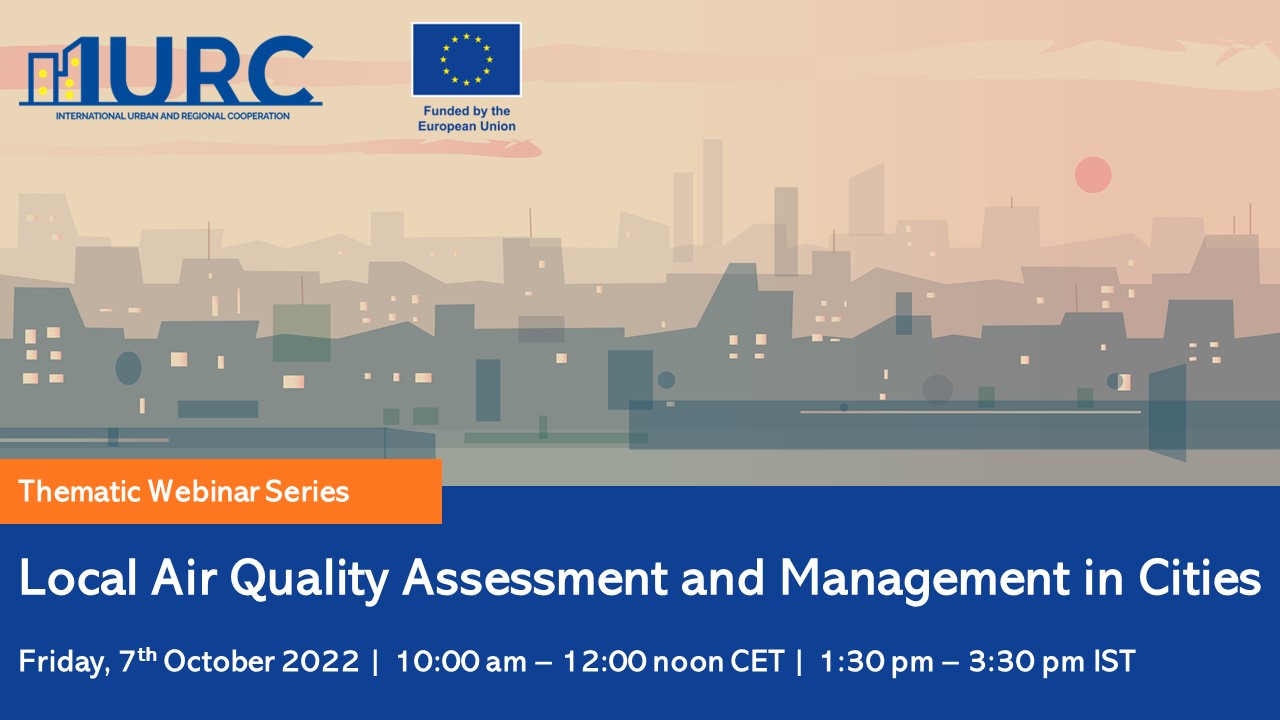On 7 October 2022, a thematic event on Local Air Quality Assessment and Management in Cities was conducted by the EU-funded IURC Asia and Australasia within the IURC thematic network Urban and Regional Renewal and Social Cohesion. This event was directed towards city officials who are working on local air quality issues. Officials from the Indian cities of Kanpur, Patna, PMRDA, and Chennai participated in this event, with the aim to share best practices and identify approaches to assess and manage local air quality.
Over a 2-hour interactive event, Mr Pablo Gándara, Team Leader, IURC Asia & Australasia delivered the welcome address, while Mr Ashish Verma, Urban Development Manager, IURC Asia & Australasia set the scene. Three experts from the EU, India and Asia presented about local air quality assessment and management in their respective regions. These presentations were followed by sharing of experiences in a few of the cities, a Q&A session and a discussion of ideas for future implementation. The experts were:
- Mr. Alexandros Koulidis, Head of Unit at the Directorate of Environmental Licensing in Hellenic Ministry of Environment and Energy, Greece
- Dr. Suresh Jain, Professor of Civil & Environmental Engineering, Indian Institute of Technology, Tirupati, India
- Dr Dong-Woo Yang, Senior Researcher, International Climate and Environment Center (ICEC), R&D Bureau, Gwangju, Republic of Korea
- Mr Sang-Hyun Kang, Research Fellow, International Climate and Environment Center (ICEC), R&D Bureau, Gwangju, Republic of Korea
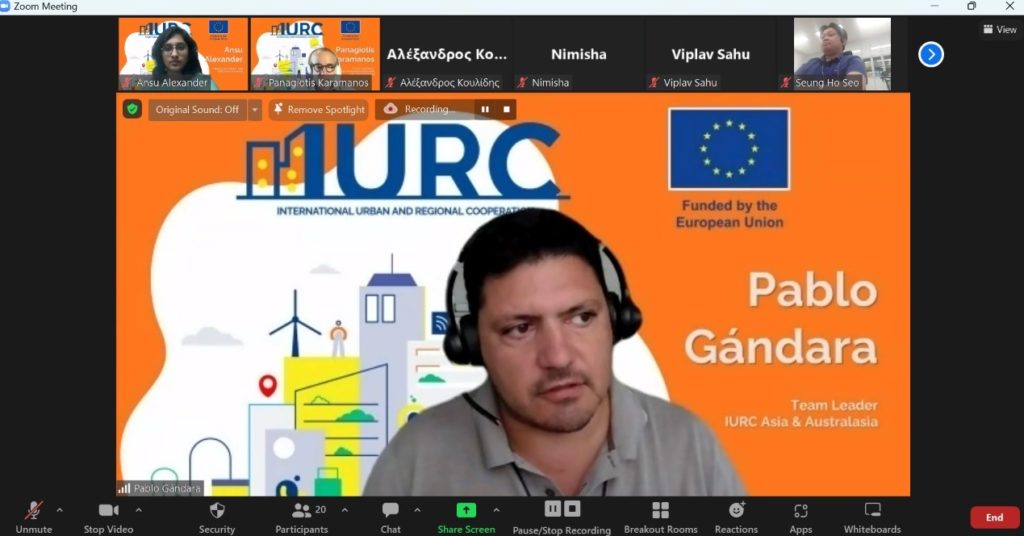
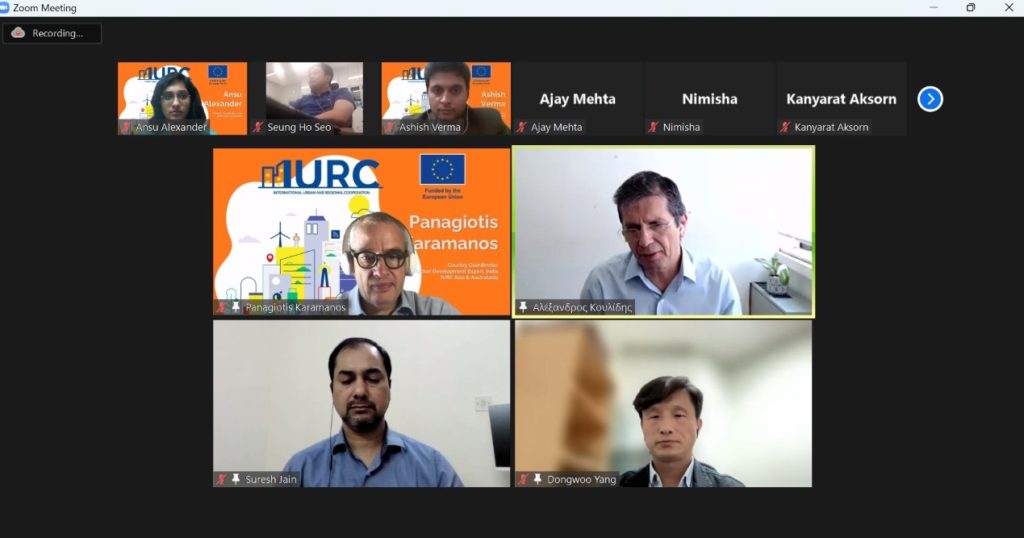
The key conclusions were that the EU approach on air quality focuses on a multi-sectoral integrated method with technological improvements on the major polluting installations. Environmental Impact Assessment is mandatory for projects with significant impacts on the environment. Air pollutant emissions are assessed and where necessary custom-tailored mitigation measures are imposed. Most importantly, EU works towards Zero Pollution for Air, Water and Soil 2050 with an aim to reduce the number of premature deaths caused by air pollution by 55% and reduce by 25% the impacts of air pollution on biodiversity by 2030.
India has a National Clean Air Programme as a national level strategy for reducing the level of air pollution at both regional and urban scales by 35-40% of PM2.5 & PM10 concentration by 2026. This includes mitigation measures for prevention, control and abatement of air pollution, set up a monitoring network for a reliable database and build awareness among public and capacity in physical and human infrastructure. The experts’ recommendation was to focus on air pollution control measures at the source, shift to clean fuel in industries, transport and household sector, control of construction and road dust through strategy and technology measures, improvement in public transport system, shift towards non-motorised transport and improvement of green infrastructure, etc.
South Korea’s air quality has been steadily improving from 2006 since the air quality policy focuses on addressing their primary contributors of air pollution according to the characteristics of the sub regions within the country. City wide Action Programmes for Air Quality Management including seasonal management period for fine dust, fugitive dust mitigation, low NOx burner installation for small business, inspection and enforcement for motor vehicles in use, provision of electric vehicles & charging station and provision of hydro vehicles & charging stations has also helped to achieve the clean air objectives.
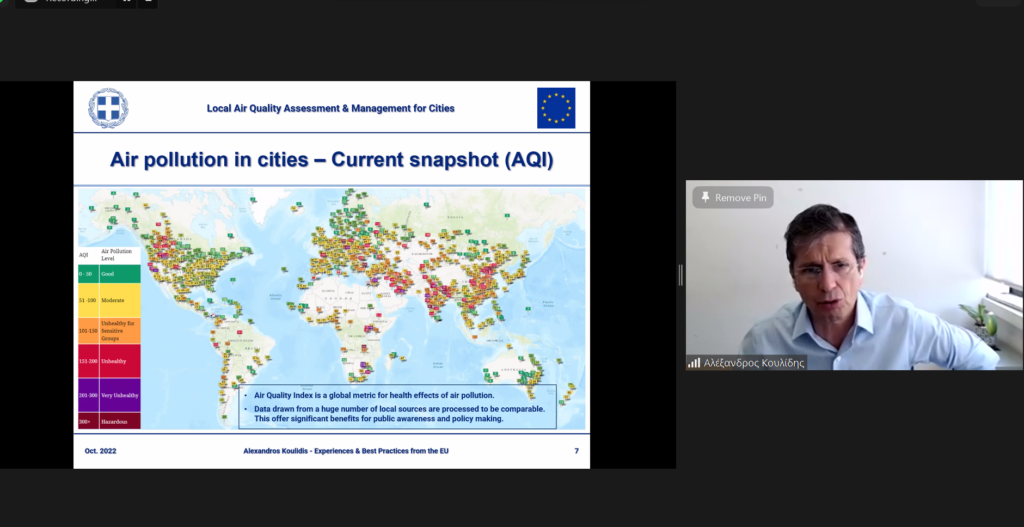
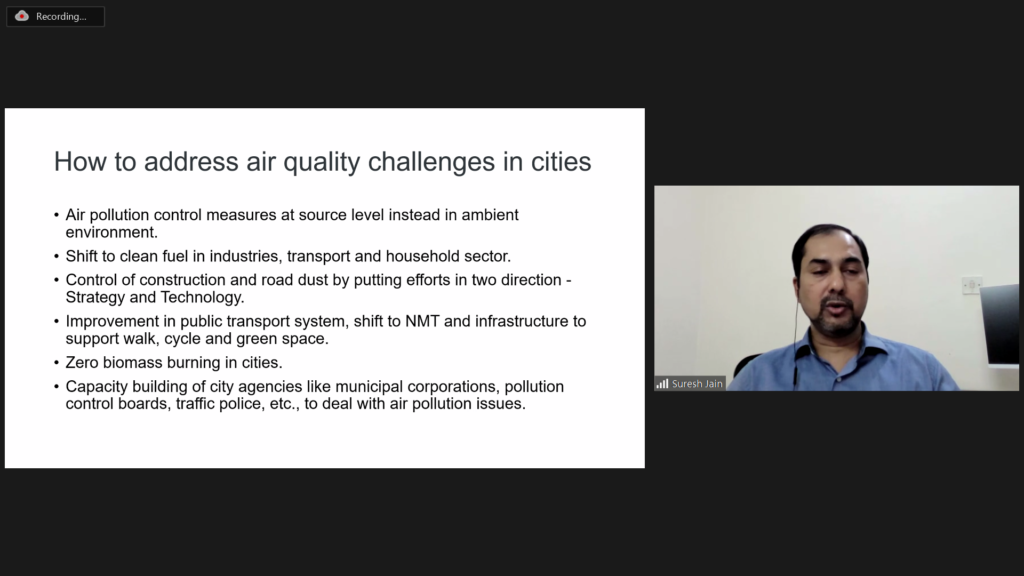
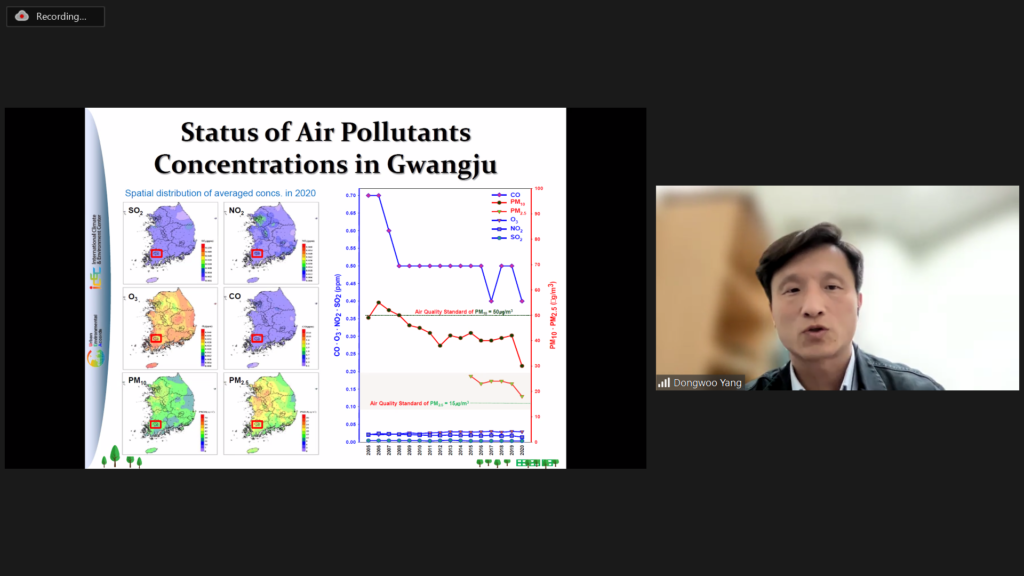
Ms Biswas, Engagement Lead, Council on Energy, Environment and Water (on behalf of Kanpur Municipal Corporation) said their focus is on negotiating conversations with brick kilns and dissuading them from burning when air quality is already very poor, conducting awareness programs and capacity building activities, data collection and analysis to identify source pollutants to help the government remedy the problem at source and identify cleaner alternatives along with a monitoring protocol. Mr Jha from Patna Municipal Corporation shared information about various activities in the city such as introduction of CNG buses, pollution testing centres being increased to check vehicle emission, development of parks, planting of trees, use of mechanical sweepers for road cleaning, etc.
Overall, it was concluded that the focus should be on the source of pollution, that a combination of national and local initiatives works best, and that capacity building and awareness is key for the successful implementation of any air pollution combating initiatives.
